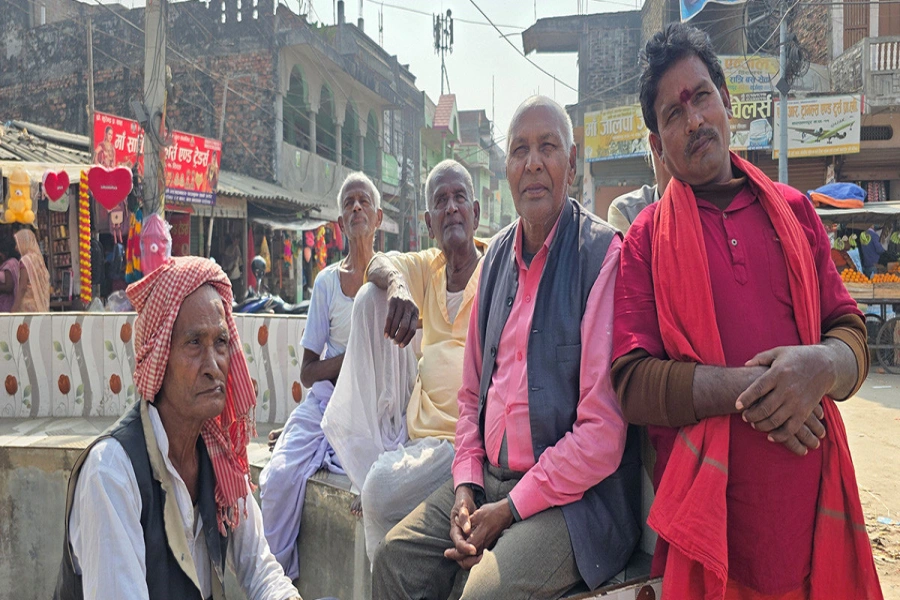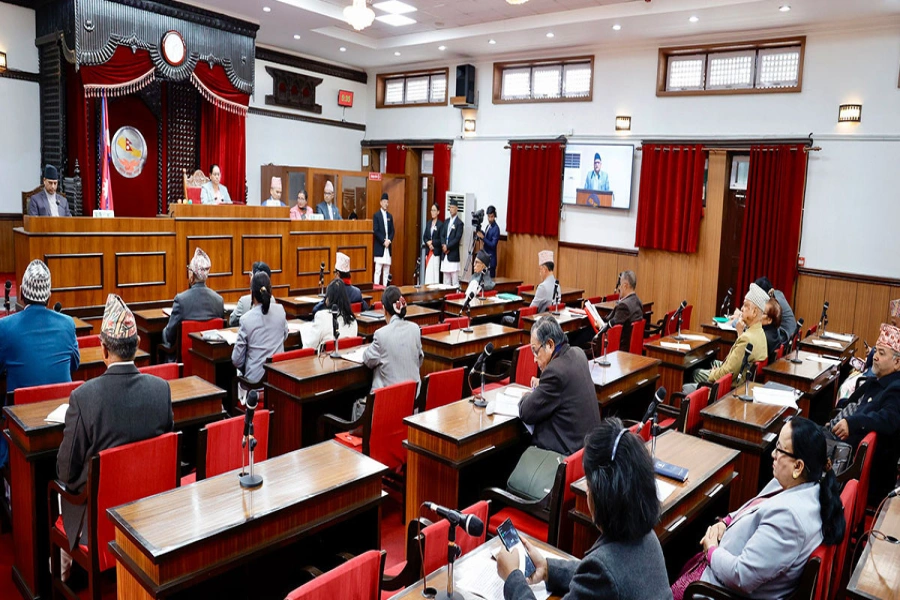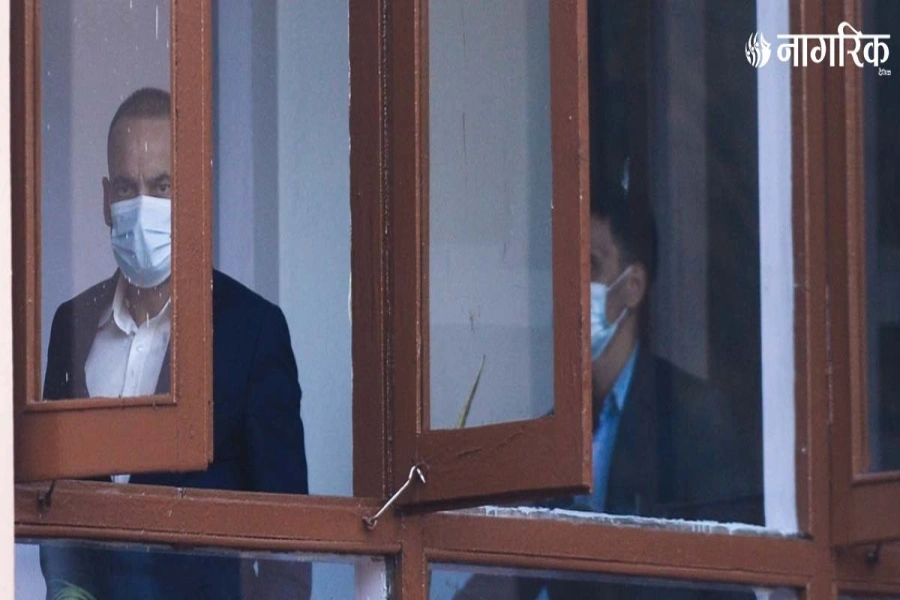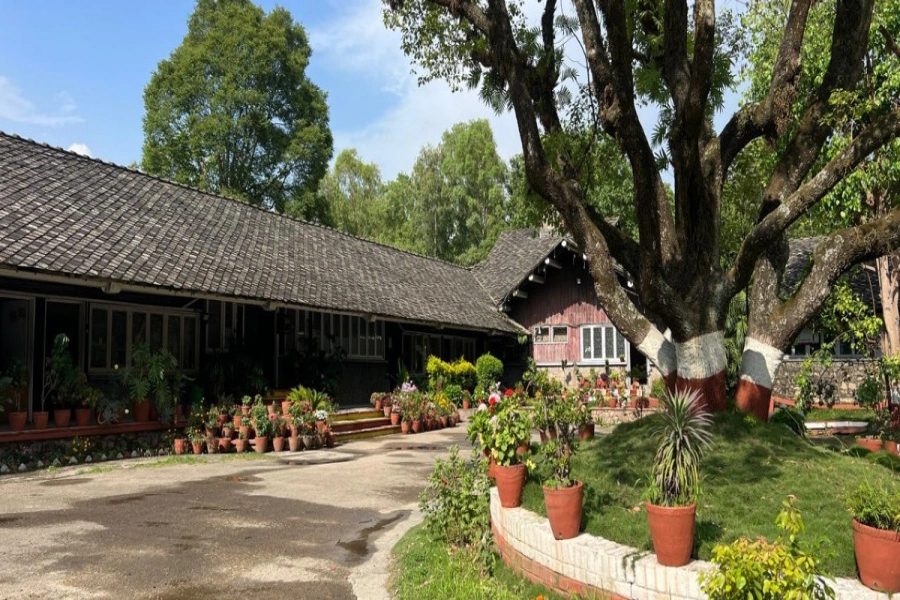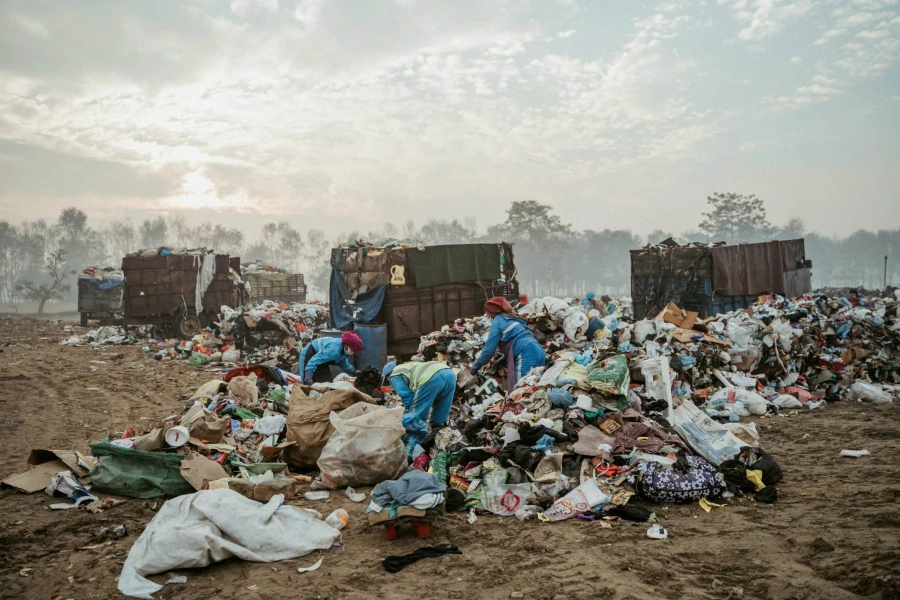The best way of maintaining sanity, yours truly has found out, is to mind your own business and live life stress-free
Thinking of the Bolivarian crisis in a country going progressively down the vortex of brewing international crises? No, for that is not how you remain sane in a country whose leadership across the political divide offers one rude shock to the public after the other, almost every day. The best way of maintaining sanity, yours truly has found out after decades of living in this turbulent land where every other fellow is a political leader with exceptional vision, is to mind your own business and live life stress-free.
Soaking in the beauty of western hills while taking part in a wedding procession, rather.
At this lush-green village seated not-so-comfortably on the lap of hills amid constant terror of marauding simian armies that attack villagers indiscriminately and do not even let them harvest the fruits of their toil, guests outnumber locals, though there’s probably no village family that’s not represented in this procession of bus and jeeps bound for the bride’s parental home located miles away. The reign of simian terror is such that local people have often staged demonstrations in front of police posts demanding security from the simians and establishing it as one of the most important election agendas.
There’s not much thinking to do now as the bus carrying the marriage procession in its womb trundles down the dirt road turned all the more dangerous due to a spell of rain, with youths dancing and singing their hearts out as the stereo system starts belting out popular folk songs and celebratory music coming from traditional instruments blaring outside. The bus passes by Deurali after paying customary respect—long gone is the practice of offering fulpati (flowers and leaves, if there are no flowers around, even leaves will do), it appears—and seeking the resident goddess’ favor for a safe journey.
Man City's Sane could resume training next week - Guardiola

The divine favor seems to have worked as the bus, somewhere down a Sal forest, has a narrow escape as the driver takes a sharp turn avoiding what appears to be its unavoidable fall down a slippery slope. One can blame it on the frenzy to cut through young mountains and build roads here, there, everywhere, with utter disregard for geological fragility, or one can just keep mum, lest he be called vikas virodhi (individual opposed to development), leaving worldly cares to Deurali.
Our ‘pegasus’ flies on talking with the wind and aiming for the stars, having no time to listen to the brook flowing almost alongside. This journey continues till a narrow, rockslide-hit stretch arrives, putting the onward march of the procession to a halt (The stars must be shining on us, for this time, the young driver, though high on adrenaline, chooses to turn off the engine). This demands dirtying your hands by taking off your coat, untying the tie and pulling up your sleeves to clear the debris. Together, we clear the stretch and the wedding procession marches on.
The youthful spirit of joie de vivre has become less intense now, thanks to a not-so-short journey, giving yours truly some time to focus on things around him. All around, there’s a riot of colors. The green of wheat fields and vegetables, the blazing yellow of the mustard crop and flowers of different hues, all fed by the sun, the wind, the ether and gushing waters. Who else save us would want to leave a countryside where everything—and not just a romantic’s imagination—grows? Who else but we would want to leave heaven and sweat it out in some of the most hostile parts of the world, be cannon fodders even? Yours truly wonders if there’s some medical condition that drives us away from this heaven on Earth.
A colorful bird flies away from the carpet of greens amid a canvass of natural colors radiating from flowers, crops and forests as we approach the bride’s parental home to the accompaniment of traditional music with a tinge of sadness flowing from traditional wind instruments and drums. This is how our musical instruments weep together with bleeding hearts of parents, friends and cousins for having to bid adieu to the apple of their eyes.
With this arrival, a frenzy of activities begins. Kettles sing and fill cups of steaming tea that soon get empty amid a warm hospitality in this cold weather. Amid chants of mantras and traditional music, the nuptial knot ritual begins. In-laws mingle, the groom’s shoes vanish as part of an odd ritual and getting them back requires some negotiation and some cash payment. Photo sessions with the celebrities—the newly-wed couple—follow with a bevy of revelers jostling to take quick wifies.
Then there’s this feast to partake on and then return, this time with the bride. On the way back, the bus pulls us through the entire stretch save one particularly muddy section where a dozer comes to our rescue as collective effort to drag the bus out bears no fruit.
In this opportune moment, supporters of ruling and opposition parties exchange barbs over the condition of the road, in good humor. This is a huge positive change compared to the 90s when Nepali Congress and CPN-UML activists used to come to blows over little things.
Afterwards, it’s a smooth journey back. Tired, we return with the newlyweds at around midnight to be with our kith and kin, some of whom we have not seen for years.
After meals, in between card games, a talk on the political goings-on for the dessert. We all have our political beliefs, but with the fire of successive revolutions dying down, we can put forth our views without coming to blows and that’s a huge relief. Yours truly doesn’t know whether this is the sign of a maturing democracy or a brewing frustration with political leadership at the left, centre, right and the street. Anyway, not knowing is a huge relief, for ignorance is a bliss where knowledge is a curse.
Our talks veer off from domestic politics to the Bolivarian crisis and its possible implications for the ruling party and the country. Yours truly feels there’s an inherent lack of desire on his part, at least, to go deeper into myriad crises facing this country and this world, which is good because if you delve too much, there’s every chance of you losing sanity.
The conversation ends quite soon, allowing yours truly to go to bed with a resolve to remain sane at all costs, for there are a thousand things to talk about, think about and write home about.



